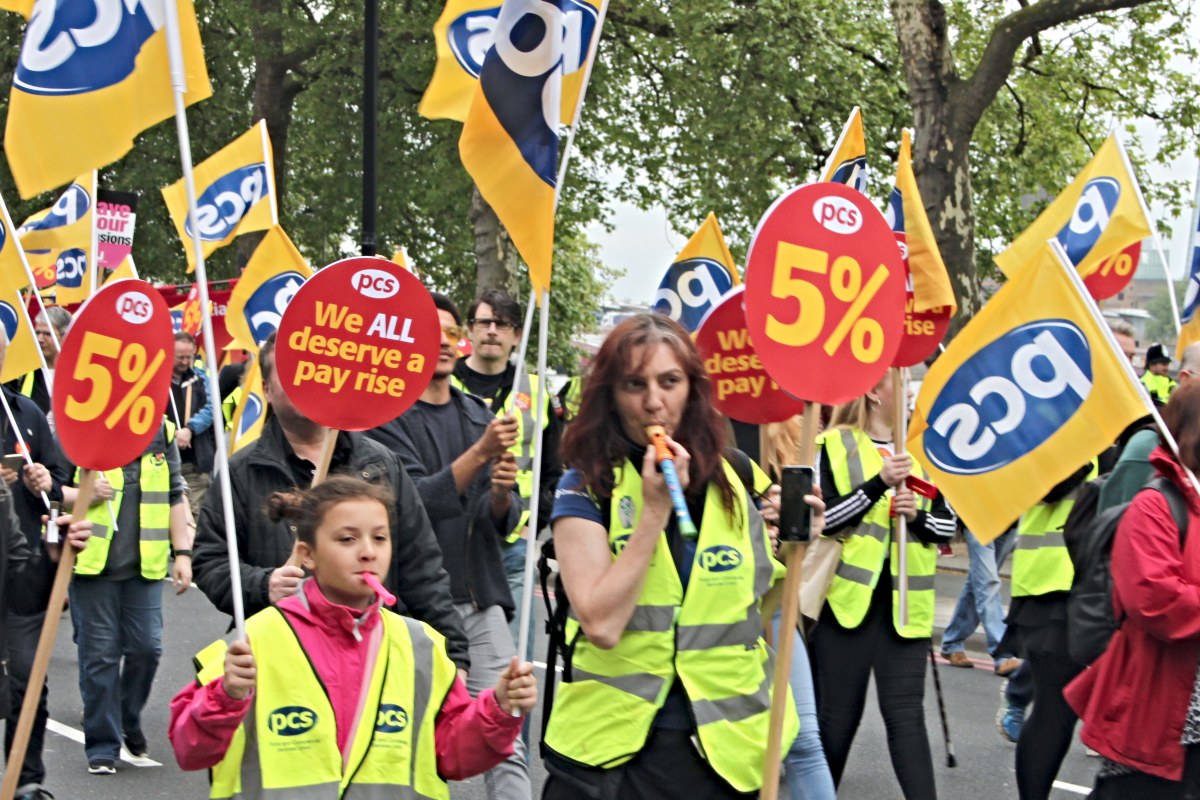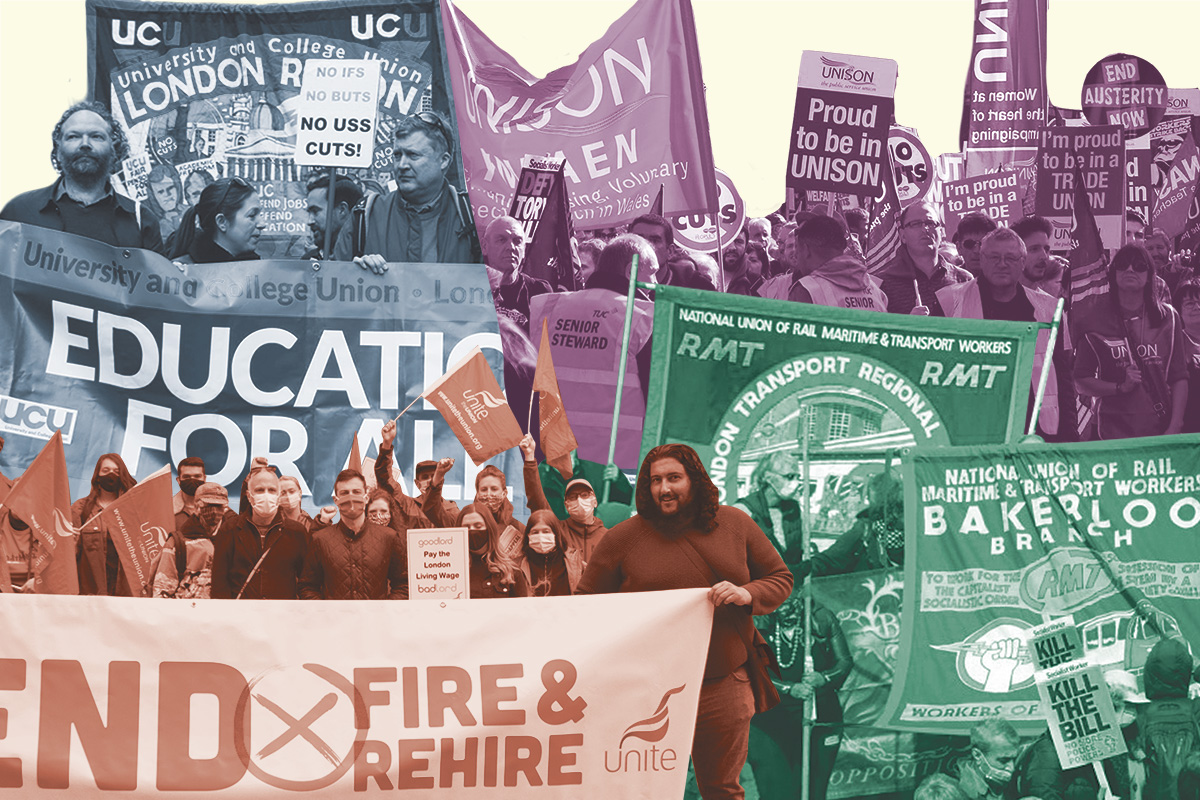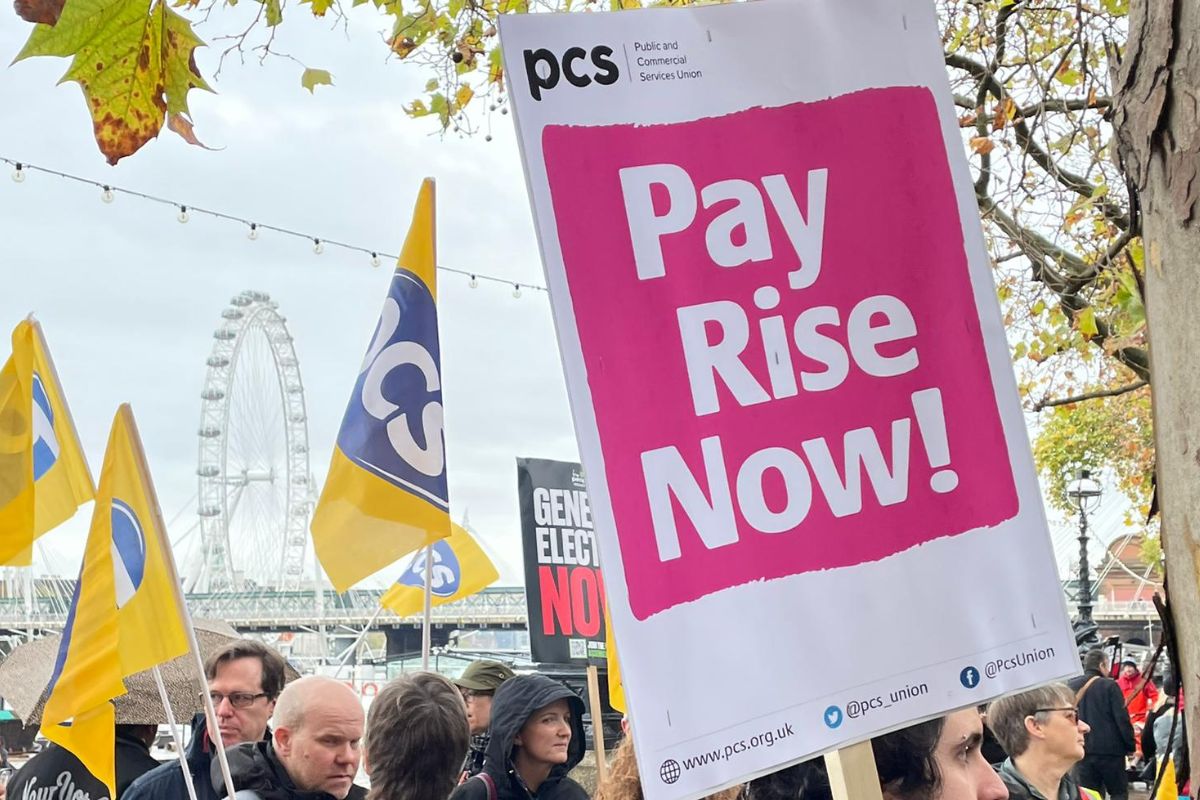PCS members in the civil service are the latest section of workers to vote for action, following on from nurses and university staff. With other public sector workers balloting, the potential for a mass campaign of coordinated strikes is clear.
Last week, on 10 November, the Public and Commercial Services (PCS) union released the results of its strike ballot of civil servants, in a dispute over pay, pensions, and job security.
The union balloted 214 workplaces, in a disaggregated vote. In total, 126 of these smashed through the 50% turnout threshold, imposed by the Tories’ anti-union laws.
Importantly, members returned a thumping 86.2% ‘Yes’ vote for strike action – the highest in the union’s history. This means that potentially hundreds of thousands of workers across the civil service are now set to strike.
This will include an extremely wide-reaching layer of the public sector. HM Passport Office; the Driver and Vehicle Licencing Agency; the Department for Work and Pensions; the Department for Education: all of these departments and others will now be preparing to walk out.
The impact will be enormous, with picket lines in all parts of the country. Having put up with endless attacks for years, civil service workers have had enough.
Dire conditions

As a workforce, PCS members have faced consistent cuts under subsequent Tory governments, leading to dire living conditions.
The results of a recent cost-of-living survey by the union speak for themselves. 52% of members stated that they are worried about losing their homes as bills and inflation rocket. 40% said that they have to resort to credit for essential shopping.
35% of respondents said that they have skipped meals because they cannot afford food. 9% have claimed benefits because of low pay. And 8% have used foodbanks.
One PCS member working for the Border Force underlined the difficulties that many face:
“I’ve had to sell my two-bedroom flat with two bathrooms and a parking space, and I’m now renting a one-bed flat with one bathroom and no parking space. Not that it matters having no parking space because I’ve had to sell my car…”
This insight into the life of one worker demonstrates the scale of the crisis, with 85% of PCS members saying that the cost-of-living catastrophe has had a negative effect on their physical and mental health.
Reballots
There were some workplaces where the 50% turnout threshold was narrowly missed. This includes HM Revenue and Customs (HMRC) and the Ministry of Justice.
There are many reasons behind this. Members at HMRC, for example, benefited from a deal that promised a series of pay rises over consecutive years. In other departments, there were simply not enough reps to mobilise workers for the ballot.
This could change in the course of the struggle, however. A strong display on the picket lines will draw new layers into activity, strengthening union branches in the process – not only those taking action, but also those who didn’t reach the ballot turnout requirement.
PCS is already correctly moving towards re-balloting key workplaces. Given that the average turnout was 51% overall, the possibility of a truly national strike is clearly there.
Therefore, if and when we have to reballot nationally, it should be a nationwide strike vote, not a disaggregated one. Every department can then be brought out together, building upon this momentum.
For united action!

With capitalism in crisis, the problems facing civil service workers are the same as workers across society.
We therefore cannot afford to be isolated and allow ourselves to be picked off; nor should we simply hold ‘protest’ strikes. Instead, the whole trade union movement must prepare to strike hard and strike together.
PCS general secretary Mark Serwotka has already stated the need for coordinated action. At a recent protest organised by the People’s Assembly, for example, he said that PCS would seek to coordinate its walkouts with those of sister unions.
This is 100% correct. With so many ballots and strikes running simultaneously, there has never been a better time to unite our battles.
The whole trade union movement should organise a unified campaign of hard-hitting strike action against this Tory government and its capitalist backers. This should include a coordinated public sector strike to show our strength, and encourage workers everywhere to join the struggle.
This is the militant strategy that the TUC leaders must take up, linked to the fight for a bold socialist programme.
To end the cuts to jobs, pay, and conditions, our movement must fight to reverse austerity and link pay rises to prices, with a positive sliding scale of wages. And to fund public services, we need to expropriate the billionaires and nationalise the top monopolies – those fat cats who’ve made their millions by squeezing our class.
We say: For a mass campaign of coordinated action! Kick out the Tories! Kick out capitalism!






